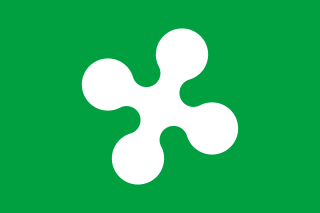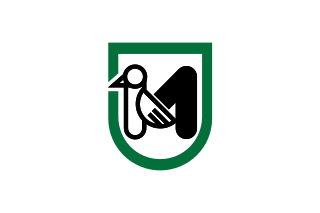 |
|---|
|
The 1980 Piedmontese regional election took place on 8 June 1980.
 |
|---|
|
The 1980 Piedmontese regional election took place on 8 June 1980.
In terms of popular vites, Christian Democracy resulted narrowly ahead of the Italian Communist Party but both had the same number of seats in the Regional Council of Piedmont. After the election, the Communists and the Italian Socialist Party decided to continue their political cooperation and formed a coalition government with the Italian Democratic Socialist Party under the leadership of a Socialist, Enzo Enrietti. In 1983, the Socialists switched sides and Aldo Viglione, a Socialist who had been president of Piedmont from 1975 to 1980, formed the Pentapartito as the new regional government, along with the Christian Democrats, the Democratic Socialists, the Italian Liberal Party, and the Italian Republican Party.

 | ||||
| Party | votes | votes (%) | seats | |
|---|---|---|---|---|
| Christian Democracy | 956,356 | 32.4 | 20 | |
| Italian Communist Party | 932,888 | 31.7 | 20 | |
| Italian Socialist Party | 417,763 | 14.2 | 9 | |
| Italian Democratic Socialist Party | 176,412 | 6.0 | 3 | |
| Italian Liberal Party | 174,728 | 5.9 | 3 | |
| Italian Social Movement | 117,724 | 4.0 | 2 | |
| Italian Republican Party | 98,155 | 3.3 | 2 | |
| Proletarian Unity Party | 29,656 | 1.0 | 1 | |
| Proletarian Democracy | 24,998 | 0.9 | - | |
| Piedmontese Union – List for Trieste | 15,627 | 0.5 | - | |
| Revolutionary Communist League | 2,388 | 0.1 | - | |
| Revolutionary Socialist League | 1,143 | 0.0 | - | |
| Total | 2,947,838 | 100.0 | 60 | |
Source: Ministry of the Interior

The politics of Italy are conducted through a parliamentary republic with a multi-party system. Italy has been a democratic republic since 2 June 1946, when the monarchy was abolished by popular referendum and a constituent assembly was elected to draft a constitution, which was promulgated on 1 January 1948.

Christian Democracy was a Christian democratic political party in Italy. The DC was founded on 15 December 1943 in the Italian Social Republic as the ideal successor of the Italian People's Party, which had the same symbol, a crusader shield. As a Catholic-inspired, centrist, catch-all party comprising both centre-right and centre-left political factions, the DC played a dominant role in the politics of Italy for fifty years, and had been part of the government from soon after its inception until its final demise on 16 January 1994 amid the Tangentopoli scandals. Christian Democrats led the Italian government continuously from 1946 until 1981. The party was nicknamed the "White Whale" due to its huge organisation and official colour. During its time in government, the Italian Communist Party was the largest opposition party.

The Italian Socialist Party was a social-democratic and democratic-socialist political party in Italy, whose history stretched for longer than a century, making it one of the longest-living parties of the country. Founded in Genoa in 1892, the PSI was from the beginning a big tent of Italy's political left and socialism, ranging from the revolutionary socialism of Andrea Costa to the Marxist-inspired reformist socialism of Filippo Turati and the anarchism of Anna Kuliscioff. Under Turati's leadership, the party was a frequent ally of the Italian Republican Party and the Italian Radical Party at the parliamentary level, while lately entering in dialogue with the remnants of the Historical Left and the Liberal Union during Giovanni Giolitti's governments to ensure representation for the labour movement and the working class. In the 1900s and 1910s, the PSI achieved significant electoral success, becoming Italy's first party in 1919 and during the country's Biennio Rosso in 1921, when it was victim of violent paramilitary activities from the far right, and was not able to move the country in the revolutionary direction it wanted.

The Democratic Party of the Left was a democratic-socialist and social-democratic political party in Italy. Founded in February 1991 as the post-communist evolution of the Italian Communist Party, the party was the largest in the Alliance of Progressives and The Olive Tree coalitions. In February 1998, the party merged with minor parties to form Democrats of the Left. At its peak in 1991, the party had a membership of 989,708; by 1998, it was reduced to 613,412.

The 1979 Italian general election was held in Italy on 3 June 1979. This election was called just a week before the European vote: the failure to hold the two elections at the same time caused much criticism for wasting public money.

The 1983 Italian general election was held in Italy on 26 June 1983. The Pentaparty formula, the governative alliance between five centrist parties, caused unexpected problems to Christian Democracy. The alliance was fixed and universal, extended both to the national government and to the local administrations. Considering that the election result did no longer depend on the strength of the DC, but the strength of the entire Pentapartito, centrist electors began to look at the Christian Democratic vote as not necessary to prevent a Communist success. Moreover, voting for one of the four minor parties of the alliance was seen as a form of moderate protest against the government without giving advantages to the PCI. Other minor effects of this election were a reduction of the referendarian Radical Party and the appearance of some regional forces.

The 1987 Italian general election was held in Italy on 14–15 June 1987. This election was the first Italian election in which the distance between the Christian Democrats and the Communists grew significantly instead of decreasing. Two parties that had not previously been in parliament won representation: the Greens with thirteen seats, and the Northern League with two.

The politics of Lombardy, a region of Italy, takes place in a framework of a semi-presidential representative democracy, whereby the President of the Region is the head of government, and of a pluriform multi-party system. Legislative power is vested in the Regional Council of Lombardy, while executive power is exercised by the Regional Government led by the President, who is directly elected by the people. The current Statute, which regulates the functioning of the regional institutions, has been in force since 2008.

The 1990 Calabrian regional election took place on 6 and 7 May 1990.

The 1975 Piedmontese regional election took place on 15 June 1975. Ten new seats were added to the Regional Council of Piedmont following the 1971 census.

The 1985 Piedmontese regional election took place on 12 May 1985.

The 1990 Piedmontese regional election took place on 6–7 May 1990.

The Ligurian regional election of 1980 took place on 8 June 1980.

The Marche regional election of 1980 took place on 8 June 1980.

The Sardinian regional election of 1979 took place on 17 June 1979.

The 1955 Sicilian regional election took place on 5 June 1955.

The 1978 Friuli-Venezia Giulia regional election took place on 25 June 1978.

The Italian regional elections of 1980 were held on 8 and 9 June. The fifteen ordinary regions, created in 1970, elected their third assemblies.
The centre-left coalition is an alliance of political parties in Italy active, under several forms and names, since 1995 when The Olive Tree was formed under the leadership of Romano Prodi. The centre-left coalition has ruled the country for more than 15 years between 1996 and 2022.